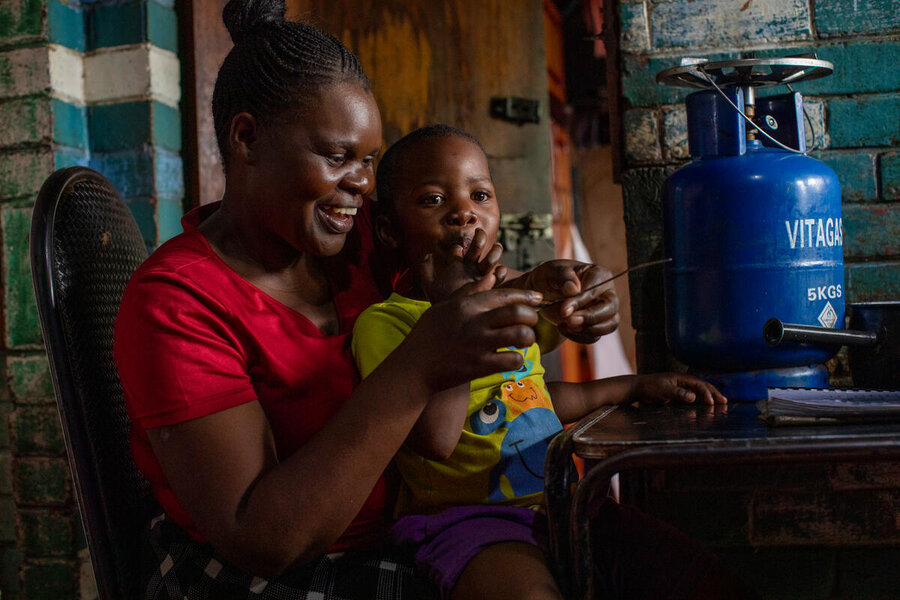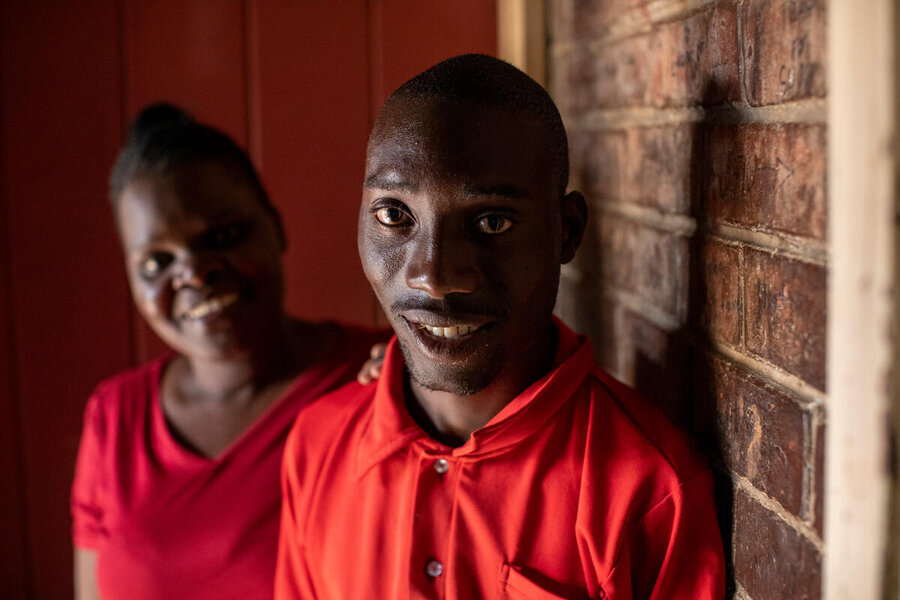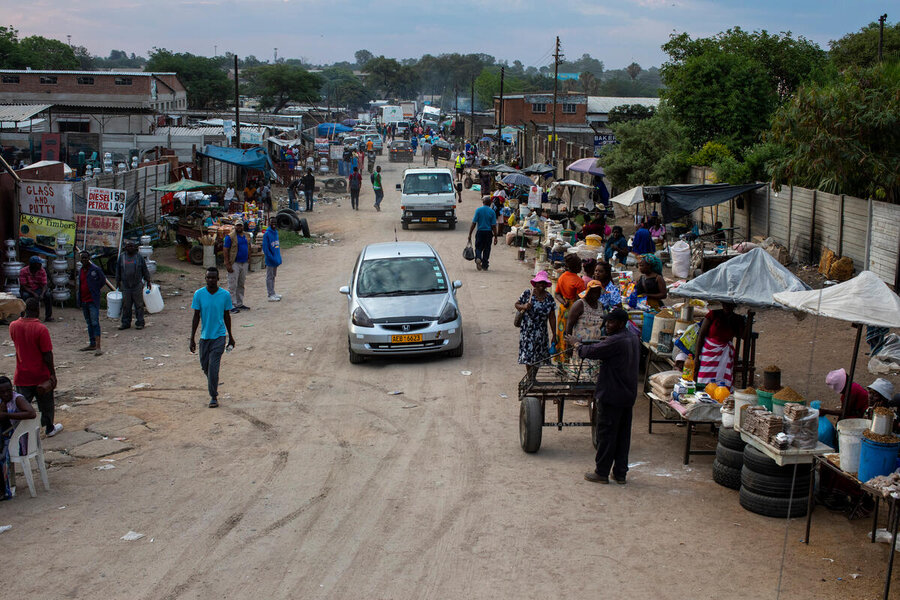The Backstory: Dancing in Zimbabwe

Taking a break from photographing a family for the World Food Programme (WFP), I stood outside their home in Zimbabwe’s second-largest town of Bulawayo, lost in thought. In these moments, I reflect on the stories unfolding before me, taking mental notes while savoring a quiet moment and a banana.
Suddenly, laughter erupted, snapping me back to reality. I turned to see twenty-one-year-old Preacher dancing with abandon, eyes alight with joy.
Preacher is the eldest son of Edith Ndebele, a single mother of four who makes a living selling peanut butter she makes at her small business. The family shares a modest two-bedroom flat in a low-income neighborhood where opportunities are scarce.
Despite their challenges, the family is close-knit, their bond evident in the playful banter between Ndebele and her children. The youngest, four-year-old Teboho, whom Ndebele's business, TebuTebu, is named after, especially enjoys his mother's peanut butter.

Visiting their home during a content gathering mission of a WFP-supported urban resilience program, I was heartened to learn how Ndebele received training and assistance to launch her micro-enterprise. She has since hired workers and expanded her business, and now chairs her town's entrepreneurs' association.
“My business means a lot to me,” Ndebele told me. “It means building a better future for my children, better than the life I have lived.”
After rebounding from the economic fallout of COVID-19, Ndebele’s business is now struggling with the financial impact of Zimbabwe’s 2024 drought that decimated crops and deepened hunger. Inflation remains a hurdle, but she can still afford her children's education - including a special school for Preacher, who has cerebral palsy.

Witnessing Preacher's carefree dance, I raised my camera. He was lost in his own world, clicking his fingers, radiating joy. I was captivated.
As a humanitarian photographer, I've spent years documenting the lives of those facing hardship. Some of the kindest people I've encountered are those I photograph - often people living on far less than I. Yet, they offer me food, shelter, and genuine well wishes.

My work is a constant exchange. I capture their realities, fulfilling my role as a photographer. But they, in turn, offer me a profound gift: a shifted perspective, a deeper understanding of the human spirit.
Preacher, dancing with such unburdened joy, reminded me of the simple power of being present in one's own body, a lesson I, someone who can't dance, deeply appreciate.
He embodies what I cherish most about my work: witnessing moments of joy, resilience, and the unwavering spirit of those who face adversity with grace.



